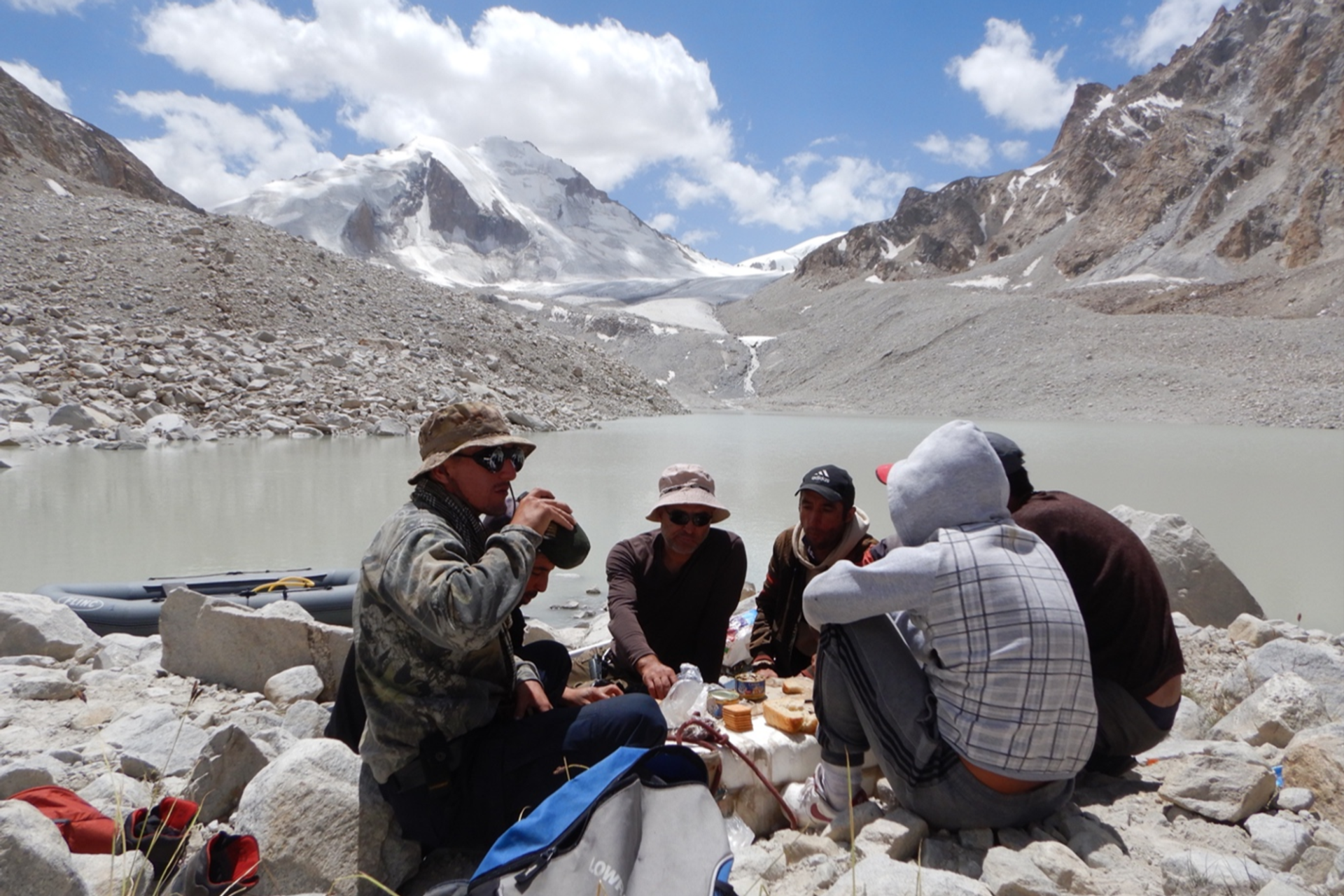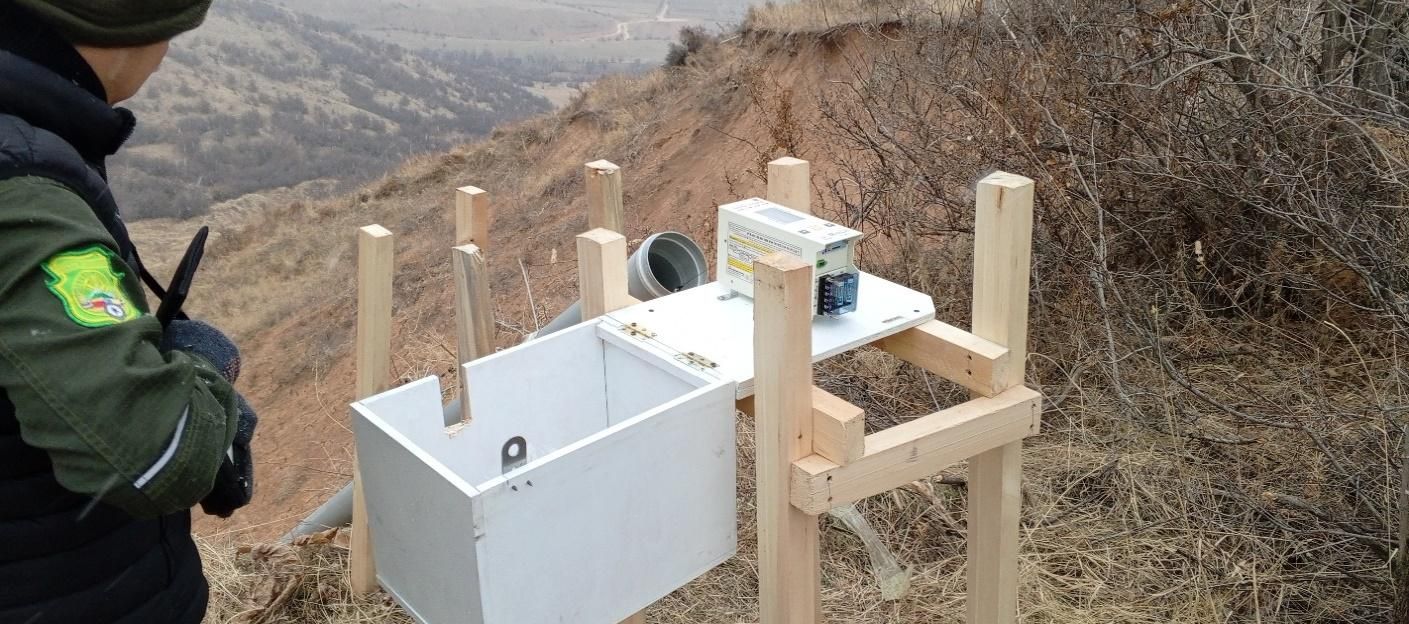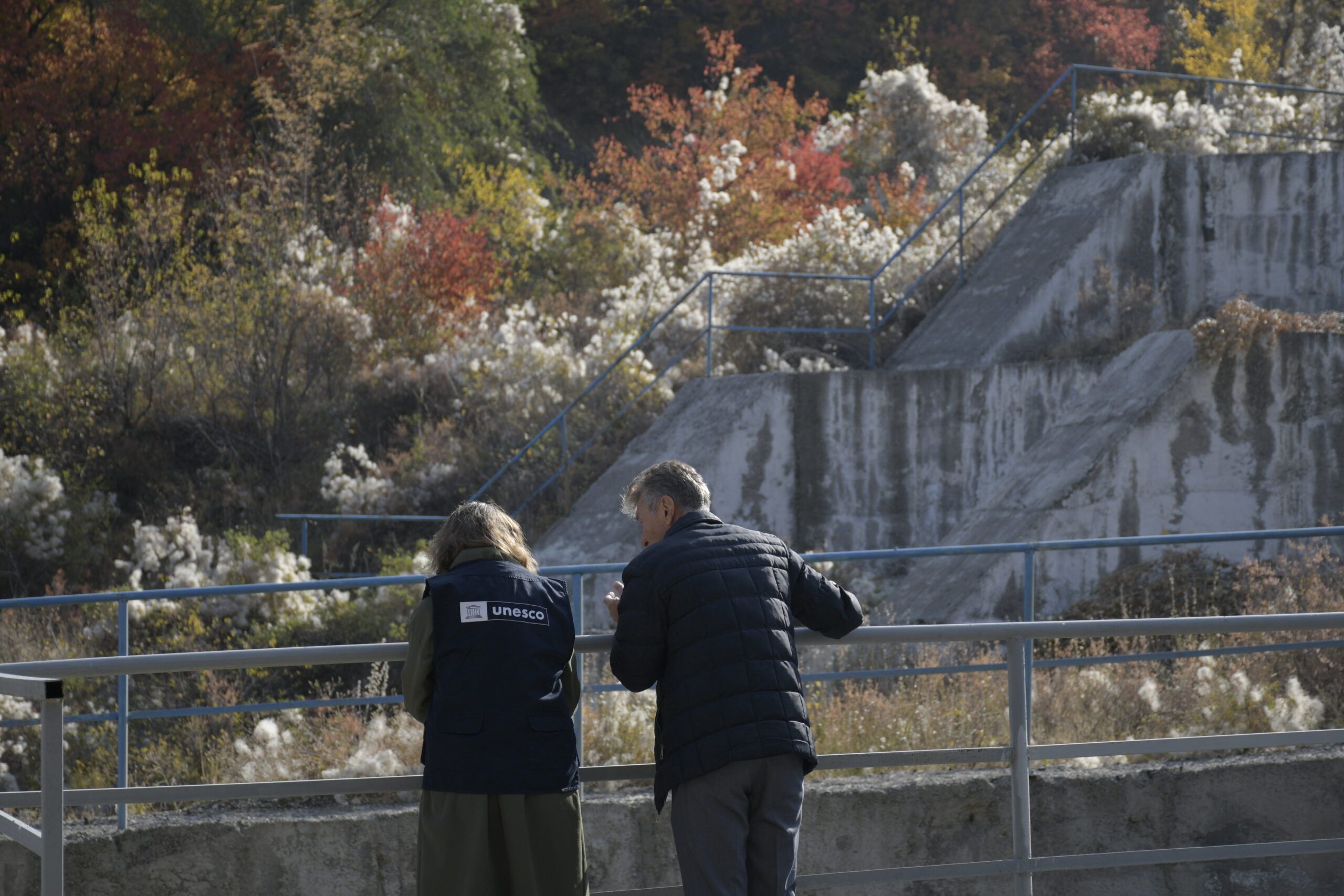Partnership20 October 2023
Collaborative Research Explores Hazards in Pamir Region, Aims to Improve Disaster Preparedness

In a recent expedition to the Pamir region, a team of researchers and agencies explored the beauty and hazards of the area, shedding light on crucial findings that have far-reaching implications.
Collaborative Research Efforts
Collaborative efforts involving the Aga Khan Agency of Habitat (AKAH), Tajik Hydromet, local research institutes, governmental agencies responsible for GLOFs, and the University of Zurich (UZH) marked the expedition. This synergy allowed for a comprehensive approach to understanding and addressing environmental risks in the region.
Local Insights
The team engaged with local communities, gaining valuable insights into their traditions, living conditions, and perceptions of risk. This local knowledge forms a crucial foundation for disaster preparedness and response.
Field Campaign Objectives
The expedition focused on assessing the susceptibility of lakes above the village of Varshedz to glacial lake outburst floods (GLOFs). Activities included data collection, bathymetric surveys, and the placement of temperature loggers.
Early Warning Systems (EWS)
Discussions with AKAH, Tajik Hydromet, local research institutes, and governmental agencies responsible for GLOFs experts explored the concept of a future Early Warning System (EWS). These discussions encompassed logistics, administrative, political, and technical considerations, laying the groundwork for effective inter-institutional collaboration and EWS implementation.
The findings of expedition resonate with various stakeholders:
- Local Communities: The importance of local engagement and community knowledge in disaster preparedness is evident, emphasizing the need for communities to stay informed and involved.
- Local Research Institutes: Collaboration with local research institutes ensures that regional expertise is leveraged to tackle environmental risks effectively.
- Governmental Agencies Responsible for GLOFs: Involvement of governmental agencies responsible for GLOFs underscores the commitment to address these specific hazards and enhance preparedness at a governmental level. This collaborative research provides critical data for disaster management and planning, informing decisions related to risk mitigation.
Overall, this collaborative research initiative underscores the significance of scientific cooperation, local engagement, and the pursuit of effective Early Warning Systems to mitigate hazards and safeguard communities in the Pamir region.
Read more

Landslide monitoring devices installed in Uzbekistan to strengthen monitoring in the Pskem area

GLOFCA installs risk information boards in Talgar and Esik, Kazakhstan
